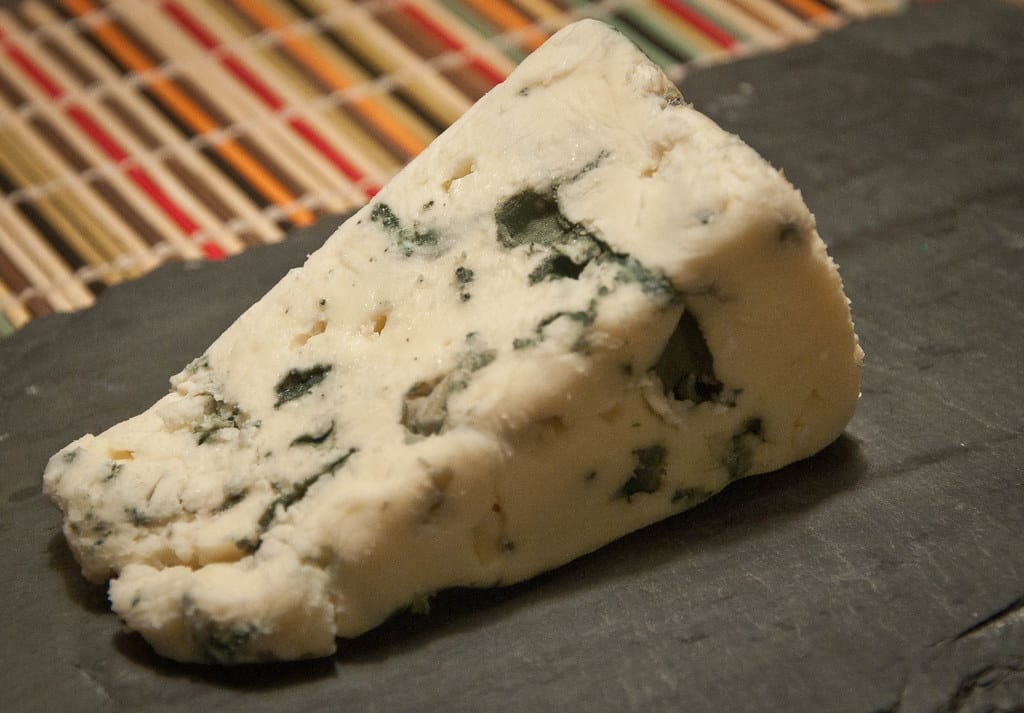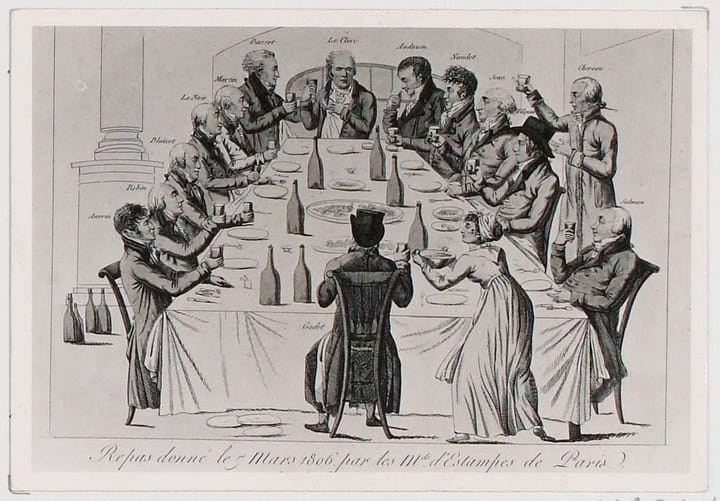Les saveurs interdites : quand l'Amérique dit "Non Merci" aux délices français !

Beginner / Intermediate /Advanced
Ah, la France ! Ses paysages pittoresques, son art de vivre, et surtout, sa gastronomie qui fait rêver le monde entier... ou presque. Car de l'autre côté de l'Atlantique, certains de nos trésors culinaires sont accueillis moins chaleureusement. Entre incompréhensions culturelles et règlements sanitaires, plongeons dans l'univers savoureux mais interdit de la gastronomie française aux États-Unis.
Roquefort : la guerre du fromage
Le Roquefort, ce noble fromage bleu, est le cauchemar de l'USDA (le ministère de l'Agriculture des États-Unis). La raison ? Son processus de fabrication implique l'utilisation de la moisissure Penicillium roqueforti, qui, bien que totalement inoffensive et essentielle à la production du fromage, ne passe pas la douane de l'appréciation américaine.
Mimolette : trop... orange ?
La mimolette se reconnaît grâce à sa couleur orange vif et sa texture unique. Mais ce n'est pas son apparence qui a attiré l'attention des inspecteurs américains, c'est la présence de minuscules acariens utilisés pour affiner le fromage. Oui, vous avez bien lu, des acariens. Avant de crier au scandale, rappelons que ces petits ouvriers contribuent à ce goût unique qui nous fait tant aimer la mimolette. Dommage que cette collaboration ne soit pas du goût de tout le monde !
Foie Gras : la controverse du bien-être animal
Le foie gras, summum de la gastronomie française pour certains, objet de controverse pour d'autres, notamment aux États-Unis où la question du bien-être animal prend le dessus. La méthode de gavage des canards et des oies est au cœur du débat, conduisant à des interdictions dans plusieurs états. Peut-être qu'un jour, on trouvera un moyen de produire du foie gras qui satisfasse tout le monde. En attendant, on le savoure en cachette, en se sentant un peu coupable, mais pas trop.
Absinthe : la fée verte bannie
Et puis, il y a l'absinthe, cette boisson mystique bannie aux États-Unis pendant plus d'un siècle à cause de sa réputation de provoquer des hallucinations. La "Fée Verte", comme on la surnomme affectueusement, a fait son grand retour sur le marché américain au début des années 2000, après que des études ont montré que ses effets psychotropes étaient grandement exagérés. Cela dit, l'absinthe conserve une aura de mystère et d'interdit qui ne fait qu'ajouter à son charme.
Les restrictions américaines sur certains produits alimentaires français soulignent les différences dans les approches réglementaires, sanitaires, et éthiques entre les deux pays. Si ces interdictions peuvent sembler limitatives, elles invitent également à un dialogue continu sur les normes alimentaires, la sécurité, et les valeurs culturelles. Pour les amateurs de gastronomie, elles rappellent l'importance de la diversité culinaire et des défis qu'elle représente dans un monde globalisé.
Traduction :
Ah, France! Its picturesque landscapes, its art of living, and above all, its cuisine that makes the whole world dream... or almost. Because on the other side of the Atlantic, some of our culinary treasures are received less warmly. Between cultural misunderstandings and sanitary regulations, let's dive into the savory but forbidden universe of French gastronomy in the United States.
Roquefort: The Cheese War
Roquefort, this noble blue cheese, is the nightmare of the USDA (the United States Department of Agriculture). The reason? Its manufacturing process involves the use of the mold Penicillium roqueforti, which, although completely harmless and essential to the production of the cheese, does not pass the customs of American appreciation.
Mimolette: Too... Orange?
Mimolette is recognized by its bright orange color and unique texture. But it's not its appearance that caught the attention of American inspectors, it's the presence of tiny mites used to refine the cheese. Yes, you read that right, mites. Before crying foul, let's remember that these little workers contribute to that unique taste that makes us love mimolette so much. Too bad this collaboration isn't to everyone's taste!
Foie Gras: The Animal Welfare Controversy
Foie gras, the pinnacle of French gastronomy for some, an object of controversy for others, especially in the United States where the question of animal welfare takes precedence. The method of force-feeding ducks and geese is at the heart of the debate, leading to bans in several states. Maybe one day, we'll find a way to produce foie gras that satisfies everyone. In the meantime, we savor it in secret, feeling a bit guilty, but not too much.
Absinthe: The Green Fairy Banned
And then there's absinthe, this mystical drink banned in the United States for over a century because of its reputation for causing hallucinations. The "Green Fairy," as it is affectionately nicknamed, made its grand return to the American market in the early 2000s, after studies showed that its psychoactive effects were greatly exaggerated. That said, absinthe retains an aura of mystery and prohibition that only adds to its charm.
American restrictions on certain French food products highlight the differences in regulatory, sanitary, and ethical approaches between the two countries. While these bans may seem limiting, they also invite ongoing dialogue on food standards, safety, and cultural values. For gastronomy enthusiasts, they remind us of the importance of culinary diversity and the challenges it represents in a globalized world.



